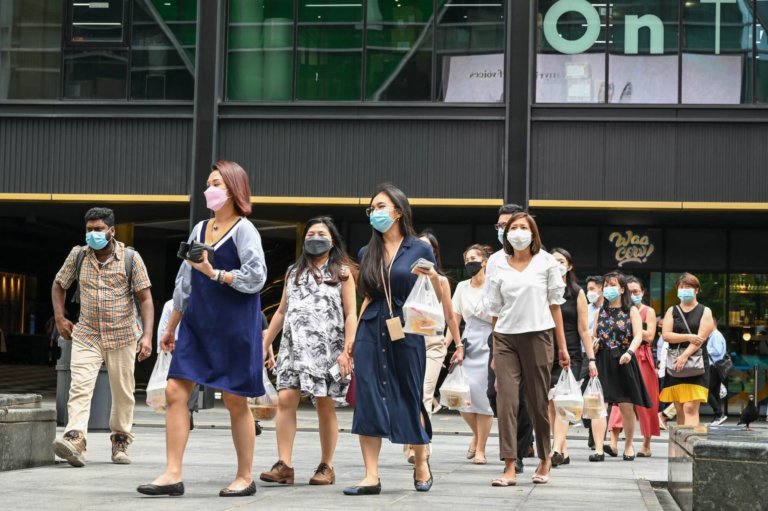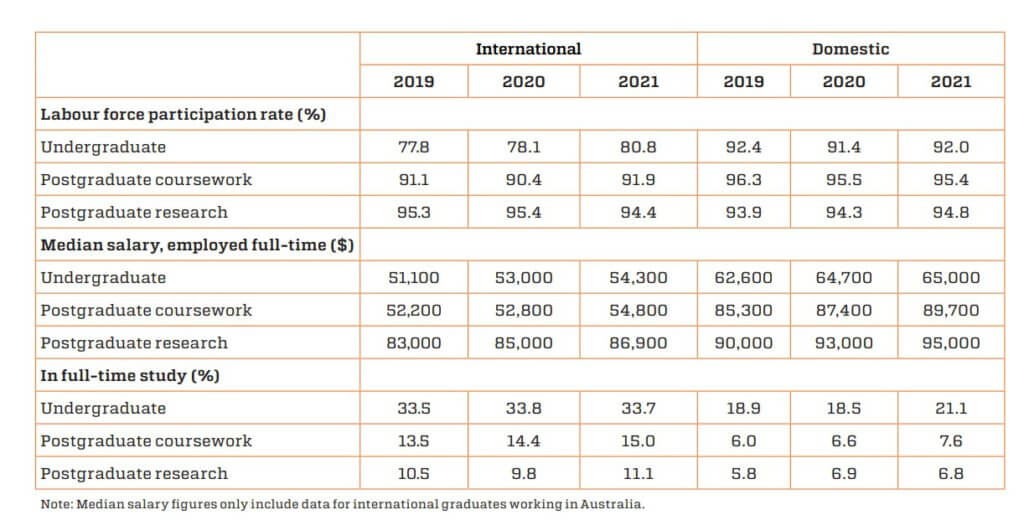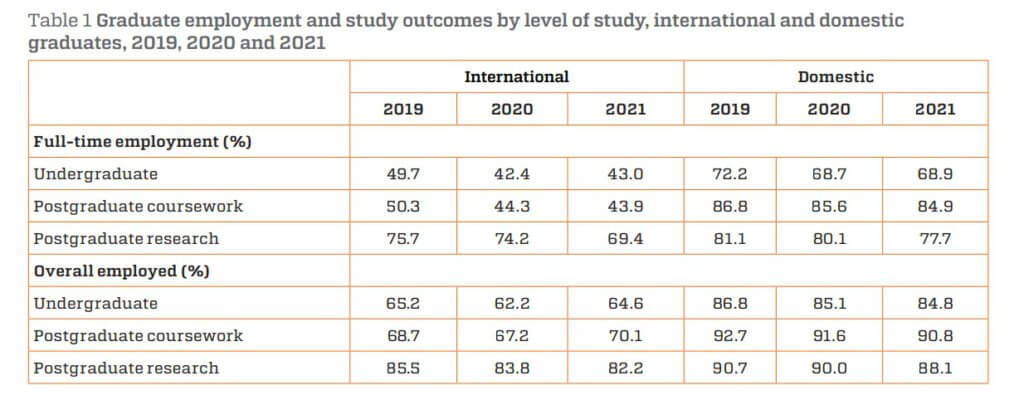
International graduates in Australia are not only finding it difficult to work in Australia due to employer confusion around visa policies, but recent government data also shows that they earn less than domestic graduates — in some instances, nearly 20%.

For undergraduates, the median salary in 2021 was A$54,300 for international graduates, compared with A$65,000 for domestic graduates, a difference of A$10,700. Source: 2021 GOS International Report
International graduates in Australia: Less earning power?
Data from the Quality Indicators for Teaching and Learning’s (QILT) 2021 International Graduate Outcomes Survey shows that median salaries are consistently lower for international than domestic graduates.
For undergraduates, the median salary in 2021 was A$54,300 for international graduates, compared with A$65,000 for domestic graduates, a difference of A$10,700 or nearly 20%. A postgraduate coursework degree does little to narrow the pay gap of international graduates in Australia.
The median full-time salary of international postgraduate coursework graduates in 2021 was A$54,800 while the figure was A$89,700 for domestic graduates. Postgraduate research degrees offer better salaries for international graduates in Australia.
The median full-time salary of international postgraduate research graduates was A$86,900, while the figure was A$95,000 for domestic graduates.

Source: 2021 GOS International Report
Employment rates of international graduates in Australia
“There was a broad decline in graduate employment rates between 2019 and 2020, for both domestic and international graduates,” said the report.
This was associated with general weakness in the Australian labour market observable from 2019, which was worsened in 2020 by measures introduced to contain COVID-19. International graduates were affected by this downturn to an even greater extent than domestic graduates, said the report.
“Results from 2021 show some minor improvement on 2020, with undergraduate full-time employment rates up by 0.6 percentage points for international graduates and 0.2 percentage points for domestic graduates,” it said.
Employment outcomes for international graduates by home country also vary considerably.
The report found that undergraduate full-time employment rates ranged from a high of 62.4% for Singaporean graduates down to 32.3% for Sri Lankan graduates. “Postgraduate coursework graduate full-time employment rates ranged from a high of 62.8% for Filipino graduates down to 35.1% for graduates from Bhutan,” it said.
“More detailed analysis would be required to understand the factors that might be impacting these, for example the mix of fields of education studied and labour market conditions in graduates’ home countries.”
International students with a degree from an Australian university can apply for a temporary graduate visa (subclass 485), which grants them full work rights. Bachelor’s graduates are typically given a two-year work visa, while those with a master’s or doctoral/PhD qualification can work in Australia for up to three or four years.
Reports show that many Australian employers are unwilling to hire international graduates despite them having an eligible work visa. This has left many graduates without a job that matches their qualifications.










